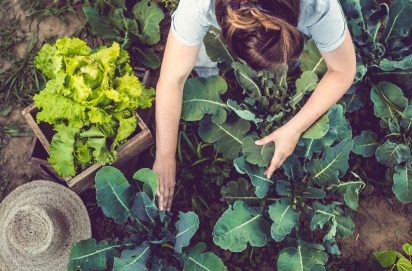How to obtain more sustainable foods
<p> The first webinar of the second edition of the Donostia Sustainibility Forum addressed the challenges and opportunities for achieving more sustainable food models. The talk was given by Jaime Zufía, coordinator of the Department of Efficient and Sustainable Processes at the AZTI technology centre and an expert in initiatives related to eco-efficiency and sustainability in the food chain.</p>

Jaime Zufía explained that food systems require the use of soil, water, electricity, fuel and materials to produce food and they also generate by-products, waste, wastewater spillages and emissions. The result is a process with a high environmental impact that causes loss of biodiversity, water shortage and degradation of the soil. In addition, 24% of global greenhouse gas emissions are currently generated as a direct result of food production.
The impact on the environment has, moreover, a negative outcome for the sector, whose opportunities for food production in the future will be reduced, precisely because of soil degradation, reduction of stocks and biodiversity, and the effects of climate change. Thus, the challenge is clear, and is evident because of the implementation of specific programmes by European policies with a sustainable approach, including the Green Deal, the European green pact, aimed at favouring sustainable food production, processing and consumption. Basque institutions have also implemented policies to promote sustainability and a circular economy in the sector, such as the Basque Strategic Plan for Gastronomy and Food and the Basque Green Deal, which will provide incentives for companies wishing to improve their processes.
The industries, Jaime Zufía pointed out, are also realising that improving eco-efficiency in their processes will benefit them by reducing costs. In addition, an increasing number of consumers are choosing sustainable products and are willing to pay more for them.
How to obtain to more sustainable foods
The keys to introducing a new work dynamic in the food industries, according to Zufía, are five:
- The local and sustainable sourcing of raw materials, prioritising agricultural, fishing and animal products that have been generated minimising the impact on the environment and favouring a short marketing chain of local products that reduce the carbon footprint linked to transport.
- The eco-design of food and facilities is important because it allows the businesses to select low-impact materials from the start, to reduce packaging, and to define more efficient production techniques and forms of distribution.
- Eco-efficient and sustainable production makes it possible to obtain more product from the same raw material, reducing the use of energy and water in the process, which leads to a reduction in emissions, waste and residues. This improves the image of companies, increases their productivity and reduces their costs.
- The recovery and use of by-products and materials, on the other hand, makes it possible to reduce waste management costs and obtain raw materials with high nutritional potential. These raw materials are of sufficient quality to be added to the human and animal food chain, or even to be used for the production of bioenergy.
- Social sustainability is the fifth key highlighted by Jaime Zufía, who stressed that "we cannot afford food production that is not socially acceptable". This is based on respect for local communities, fair remuneration for workers and attention to the demands of consumers and society in general.
According to Jaime Zufía, companies must advertise their sustainability plans and communicate their initiatives to improve in this area. There are private and public evaluation systems that certify the characteristics of the product and its production process. Which one should companies choose? The type of product and the profile and geographical area of the target consumers will determine the choice.
Food models of the future
According to Jaime Zufía, the production model for the future must have the lowest possible environmental impact, seeking the objective of zero impact, with the aim of preserving local and global health. In line with the keys outlined above, he added that the models of the future must take care of workers, be respectful of cultures and must produce food by distributing wealth throughout the chain, ensuring that all actors are adequately remunerated.
Finally, the Azti researcher explained, they must have good market penetration. Nowadays, he explained, consumers appreciate locally produced food, which is not very processed, grown using ecological means and where packaging has been reduced.
In addition, Jaime Zufía highlighted the role that Industry 4.0 is already playing in food production when it comes to developing more efficient processes and transforming the relationship with consumers. Digitalisation makes it possible to intertwine production information with data on the degree of satisfaction generated, which helps to define changes and improvements for the future.


